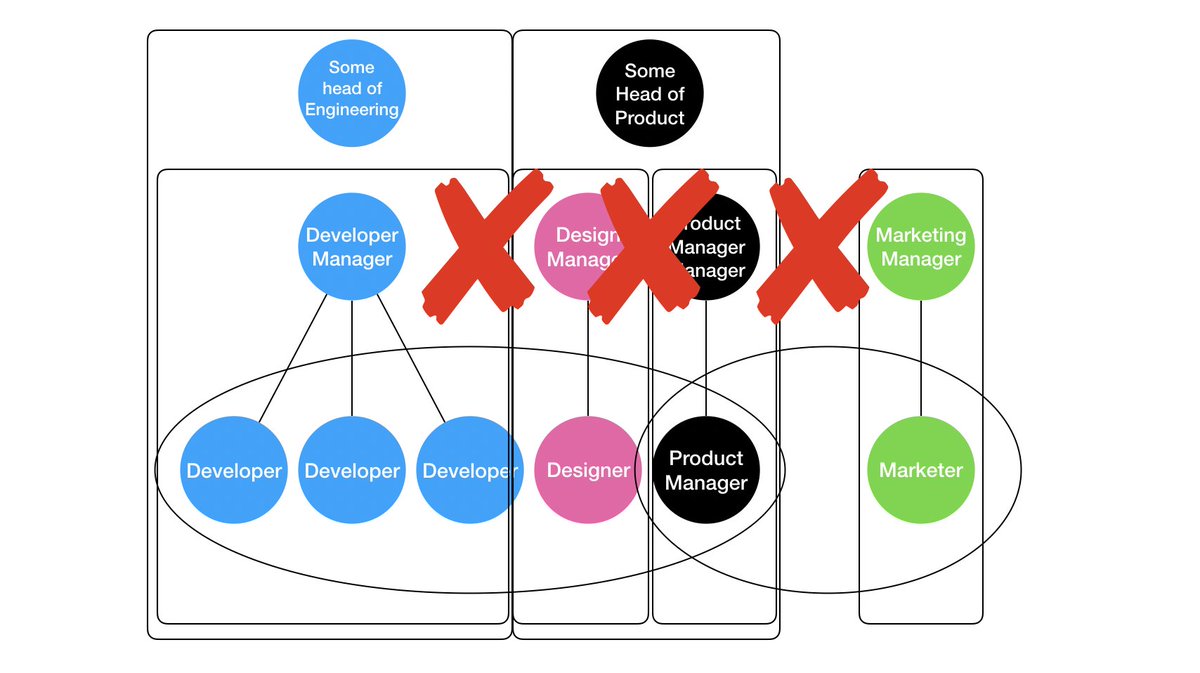
“Our developers just like to code so we can’t do X”
Lots to unpack here, but a couple thoughts:
1/n: Until anyone sees something work, they’ll opt for their comfort zone. We all do it.
Lots to unpack here, but a couple thoughts:
1/n: Until anyone sees something work, they’ll opt for their comfort zone. We all do it.
2/n: If you’re asking developers to do X, but their department is incentivized around Y (e.g. shipping) .... sure, developers will want to avoid doing X
3/n: Sometimes it is the person saying “Our developers...” who doesn’t want to do X, or doesn’t want their reports to do X. They are the uncomfortable one!
Dig deeper. Find out what “the developers” really have to say
Dig deeper. Find out what “the developers” really have to say
4/n: It is *very hard* to cycle in and out of programming and discovery in a single day. Lots of teams invite developers to 2hrs of “Activities” and then expect them to go back to business as usual. The morning/day is shot.
Dedicate efforts in day-long shots
Dedicate efforts in day-long shots
5/n finally ... in lieu of a sense of impact, we all retreat into our craft. It is what we know. I speak to lots of developers who admit to have checked out because product/design does not highlight impact and/or invite them. And treat them like factory machines.
Dig deeper...
Dig deeper...
• • •
Missing some Tweet in this thread? You can try to
force a refresh






